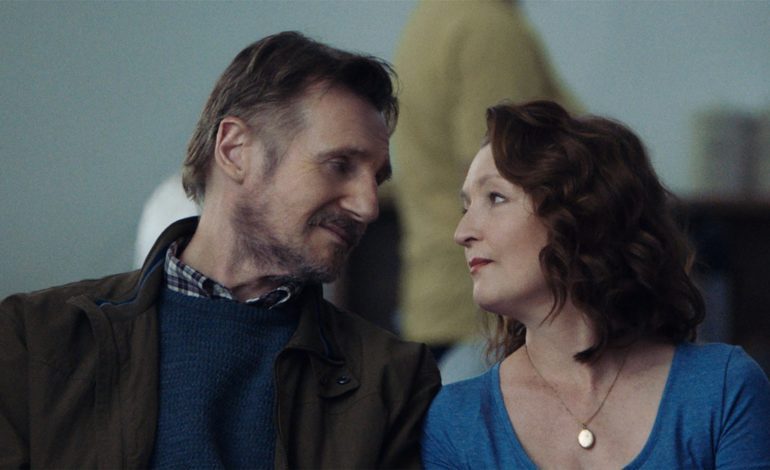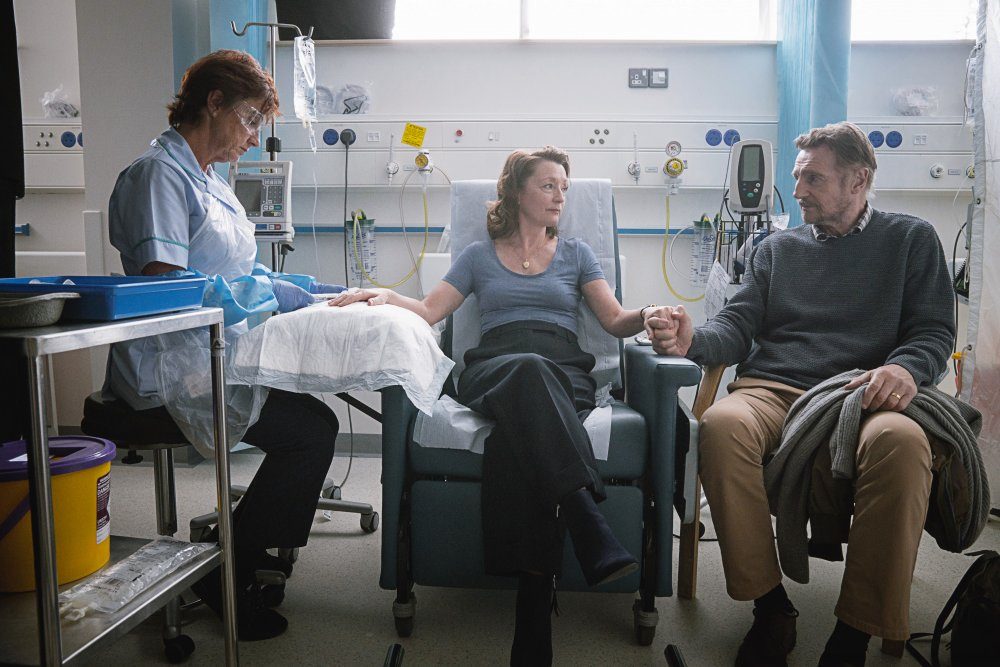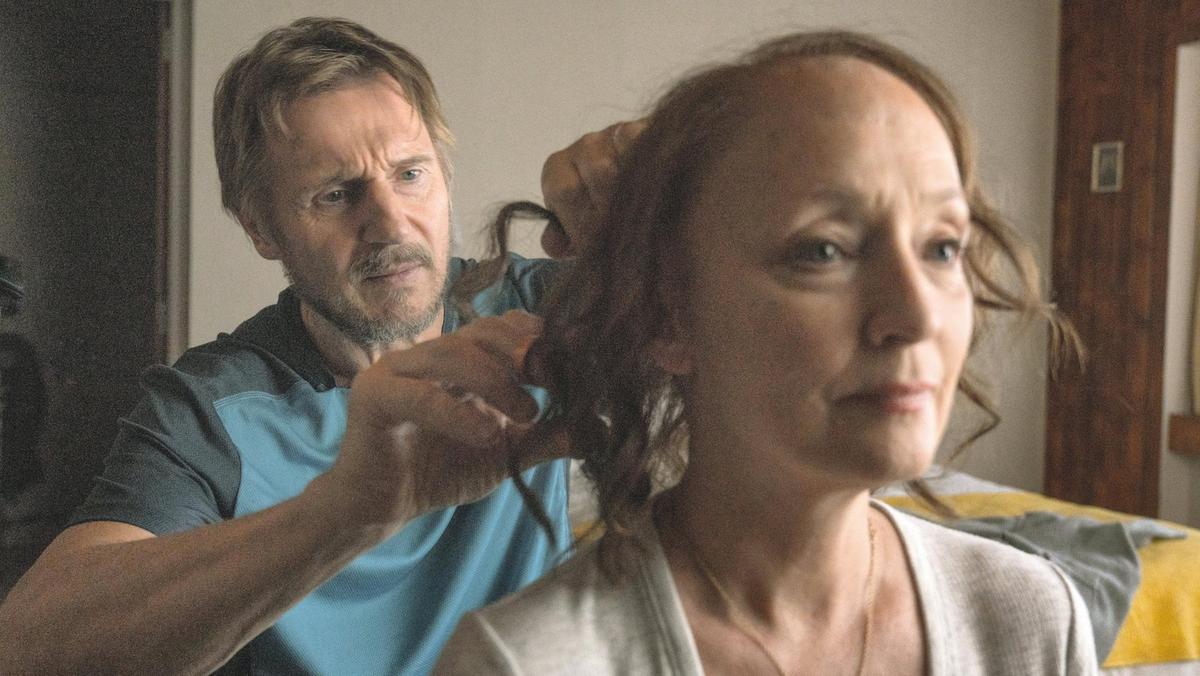

Ordinary Love is not a love story, at least not in the way that we’re used to seeing them depicted on film. It isn’t about a new, blossoming romance. It doesn’t involve any unrealistically grand gestures, long-hidden feelings, or dramatic pronouncements that ruin otherwise perfectly enjoyable social functions. It isn’t predictable, trite, or “feel good.” Rather, it offers a slice of a deeply ordinary life that works its way from one phase to another. The love depicted in this film is quiet, mundane, and comfortably real, and that is precisely its charm.
Lesley Manville and Liam Neeson play Joan and Tom, a middle-aged couple who have settled into a happy routine. They laugh, they walk, they talk about their Fitbits with the playful confusion of people young enough to adopt new technology, but old enough to be fussy about it. Most importantly, they do it all together with the reassured familiarity that comes from a lifetime of practice. When Joan discovers a lump on her breast, very little changes at first. Their routine continues, even as it begins to be tainted by a subtle undercurrent of stress and fear.
The film follows the couple as they slowly work their way through the official diagnosis of breast cancer, the next steps of treatment, and the seemingly endless road of recovery. It is in this slow and steady pace that Ordinary Love truly finds its heart. Joan and Tom experience this new world in exactly the same way that real couples do: gradually, fearfully, and one step at a time. They do their best to cling to some degree of normalcy in a deeply troubling time, and their emotions are always clearly felt, if rarely put on full display. A story like this could easily devolve into overblown melodrama, but it never does. Instead, the film takes shape through a series of intimate vignettes that proves the depth of its characters’ affection.


While they go through the cancer treatment together, both partners experience it from completely different perspectives. Joan must adapt to her new life as a full-time patient, while Tom has to adapt to the role of caretaker. Neither of them adjusts to their new reality easily. Joan suffers both physically and emotionally as her body is constantly poked, prodded, poisoned, and mutilated. Meanwhile, Tom has a seemingly easier time of things. He gets to smoke on a bench outside during the chemo treatments, and enjoy a cold beer in front of the television while his wife is sick in bed. Beneath his relatively cushy job, however, Tom must deal with his own set of challenges, constantly forced to put on a brave face and remain strong even as he faces the prospect of losing his partner.
Over time, this imbalance in the couple’s experience brings out the worst parts of any relationship –the petty fights, the pointless blame. But it also brings out the best – the tenderness, the compassion, and the forgiveness. This dichotomy is what makes Ordinary Love so touching. It shifts casually from love to anger and back again in exactly the same way that a real relationship does. Because two people can never be perfect for or to each other. All they can do is try to be the best people that they can in the moment, whether that means cleaning your wife’s vomit bucket, easing the humiliation of shaving her head, or even having awkwardly premeditated hotel sex before a double mastectomy. You do what you can in all the little moments, and try to do better next time.


As a couple who have spent a lifetime together, this is hardly their first challenge. Their daughter died young, and while that trauma is far enough in the past to never be the story’s focus, the tragedy constantly informs their experiences with this latest one. When Joan misses the annual ritual of visiting their daughter’s grave on her birthday, she asks Tom not to tell her why. This, of course, is the first thing Tom does before allowing himself his only true breakdown. Moments like these showcase how different Tom and Joan really are, which only makes their enduring love more powerful. They are individuals who come together to form a couple that is better than they are alone.
Verdict: 5 out of 5 stars.
While Ordinary Love is certainly not a pick-me-up romcom by any stretch of the imagination, it is a deeply romantic movie. By examining the kinds of challenges that all long-term relationships will have to face eventually, it tells an original and heartwarming story that is as inspiring as it is commonplace. Neeson and Manville deliver incredible performances that infuse every moment with a perfect balance of joy and sorrow, showing that love doesn’t have to be extraordinary to be real, meaningful, or enough.
